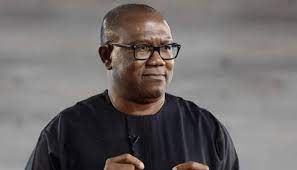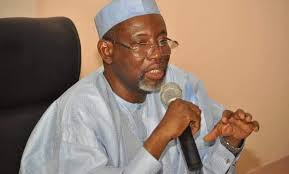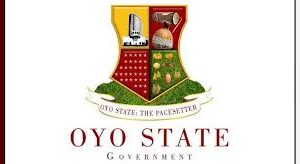John Nwokocha
The Central Bank Governors in the Economic Community of West African States, ECOWAS, have accepted a proposal to shift the full implementation of the sub-regional monetary integration project till 2020. The proposal was made by the ECOWAS Heads of State and Government.
The Nigeria’s CBN Governor, Godwin Emefiele, gave the hint on the postponement in his speech at the 31st Meeting of the Committee of Governors of the WAMZ in Abuja on Wednesday. It was observed that a lot is required to make remarkable progress by institutions and systems to realise the monetary integration dream.
This include the establishment of the College of Supervisors of the West African Monetary Zone, CSWAMZ, and the ratification of the Protocols on ECOWAS Trade Liberalisation Scheme, amongst others.
The ambition of ECOWAS Heads of State and Government is that single monetary currency of Economic Community of West African States (ECOWAS) will be implemented by the year 2020.
It was earlier planned that the single monetary union will take off next year as earlier scheduled, but the failure of member nations to meet the convergence criteria has necessitated the ECOWAS Authority Commission to once again shift the implementation timeline.
As a matter of fact the deadline for the full implementation of the common currency project was January 1, 2015.
The Governor of the Central Bank of Nigeria ( CBN) , Godwin Emefiele and the Director General of the West African Monetary Institute ( WAMI) , Dr. Abwakwu Englama, both declared this in Abuja, while addressing the 31st Meeting of the Committee of Governors of Central Banks ECOWAS member states that have been attempting to establish a single monetary union, known as the West African Monetary Zone ( WAMZ) since 1990.
In point of fact, they both revealed that it has been difficult for up to two member states meeting the criteria and sustaining them for two years.
peeved by the repeated failure to meet implementation criteria by member states, as well as to fast- track economic integration, the sub-regional authority has among other initiatives, abolished with immediate effect, the ‘residence permit’ requirement, which inhibits the free movement of citizens within the sub – region.
The abolition, announced by the ECOWAS Commission President, Dr. Kadre Desire Quedraogo last Monday, is to foster the free movement of citizens to upscale the level of intra-trade within the sub-region, as part of measures to fast-track the elusive monetary union, which has remained on the drawing board for more than three decades when the idea was first muted.
While addressing the WAMZ Technical Committee mid year meeting in Abuja, Kadreago, stated that the landmark decision was adopted on July 10 in Accra, Ghana, at the last ordinary session of the ECOWAS authority of Heads of States and Governments, aimed at accelerating the establishment of the single monetary zone in ECOWAS by 2020.
Besides the abolition of the residence permit, he said the authority also adopted ‘ the creation of a fiscal union to complement the monetary union and reduction of macroeconomic convergence criteria from 11 criteria [four primary and seven secondary criteria] to six criteria [three primary and three secondary criteria].
The three primary criteria are budget deficit [ including grants and on commitment basis] / GDP not more than three per cent ; average annual inflation not more than 10 per cent with a long term goal of plus or minus five per cent by 2019; and gross reserves of not less than three months of imports.
The three secondary convergence criteria adopted by the authority are public debt/GDP of not more than 70 per cent; central bank financing of budget deficit of not more than 10 per cent of previous year’s tax revenue ; and nominal exchange rate variation plus or minus 10 per cent.’
On his own the Nigeria apex bank governor, Emefiele explained that the governors’s meeting was to have a comprehensive review of the economic conditions of member states to ascertain the levels of their preparedness for the establishment of a sustainable monetary union in the zone, noted that though there have been modest efforts but regretted that there still exist a lot of challenges .
Hear him: ‘It is gratifying to note that the Zone is making significant progress; especially in terms of building the necessary infrastructure and institutional capacity to support the establishment of a sound monetary union. Amongst these milestones is the progress made in the integration of national payment systems in the WAMZ; establishment of the College of Supervisors of the West African Monetary Zone (CSWAMZ); formation of Ministers of Trade Forum and the ratification of Protocols on the ECOWAS Trade Liberalisation Scheme (ETLS).
‘Let me at this juncture, share with you the results of the state of preparedness study commissioned by the 32nd meeting of the Convergence Council. The study showed that the performance of Member States’ on the convergence scale relative to that required for the establishment of a monetary union is still inadequate.
‘Also, member countries’ business cycle synchronization in terms of real GDP, inflation, broad money and interest rates remained weak, and their level of institutional preparedness for the monetary union remain inadequate.
‘On a positive note, the study, noted that member countries continued to make remarkable progress towards the establishment of a common market and the implementation of the ECOWAS Trade Integration Protocols and Convention as well as significant progress towards the reforms of their financial systems.’
In his own report, Englama dimensioned the challenge further to state that only Nigeria has remained consistent, while other countries have been slipping off the requirement.
His words : ‘ On member states’ status of compliance, with macroeconomic convergence criteria, Nigeria was the only country that satisfied all four primary criteria , while Liberia and Sierra Leone satisfied three each. Sierra Leone narrowly missed the fiscal deficit criterion with 4.07 per cent indicating a significant decline compared with the 8.1 per cent in 2012.
At this rate , Sierra Leone will achieve full compliance with the primary convergence criteria by the next review. Liberia slipped on the gross reserves criterion. The Gambia slipped on fiscal deficit and central bank financing criteria , while Ghana and Guinea breached the inflation and fiscal deficit criteria. Inflation and fiscal deficit continued to be the more challenging criteria for Member States to comply with , while central bank financing and gross external reserves were the more frequently satisfied criteria.’



